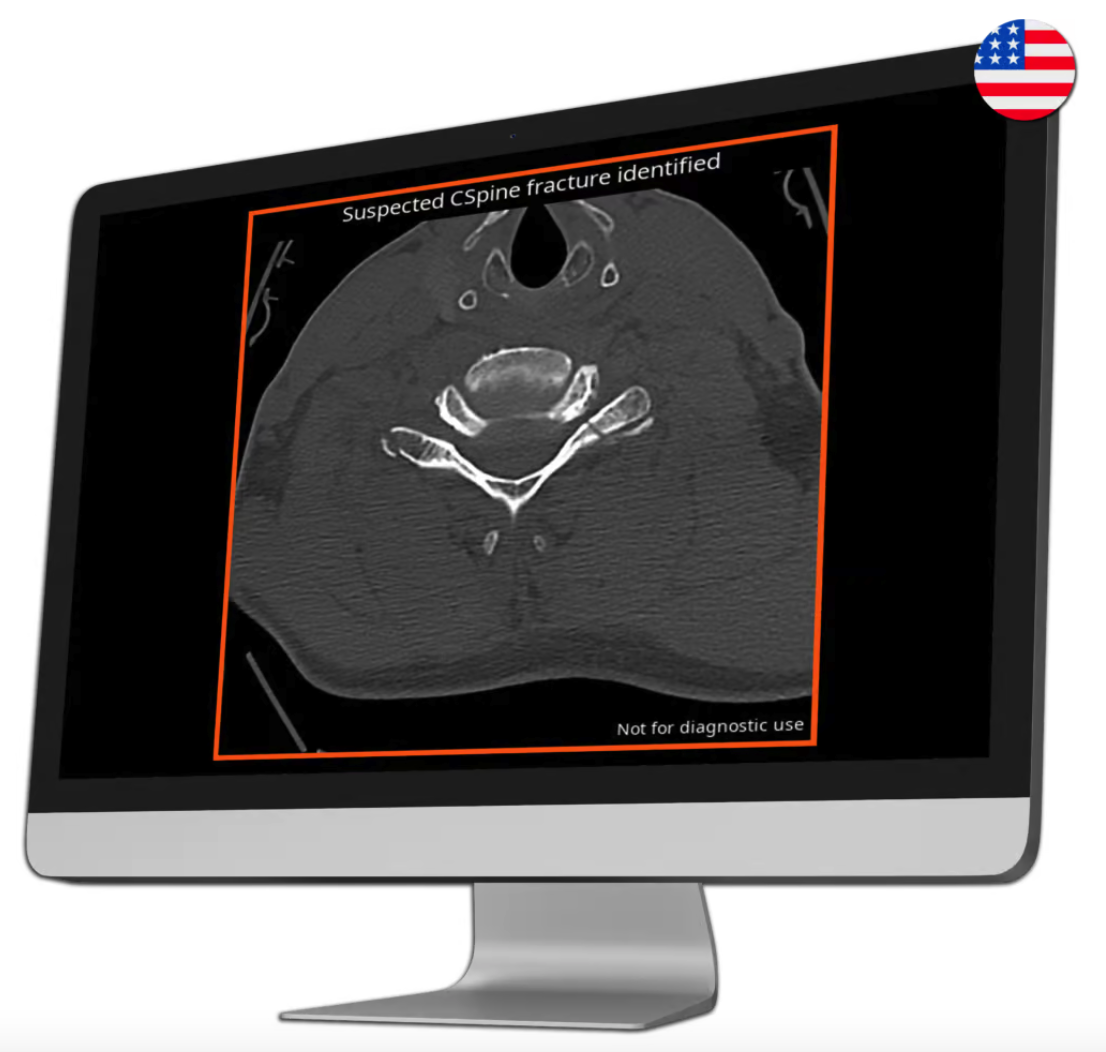AI Tool to Detect C-Spine Fractures Gets FDA Clearance

Avicenna.AI announced that it has received FDA 510(k) clearance for its CINA-CSpine tool. Using a combination of deep learning and machine learning technologies, the company develops AI solutions that automatically detect and prioritize life-threatening conditions within seconds, assess them for severity, and seamlessly notify clinicians.
CINA-CSpine is an AI tool designed to support the detection and triage of cervical spine fractures from CT images. Commonly caused by traumatic injury, a cervical spine fracture is a break in one or more of the seven vertebrae in the neck that can lead to spinal cord injury, resulting in neurological damage or even paralysis.
While the prognosis for cervical spine fractures depends on the severity of the injury, the timeliness of treatment is key, so prompt detection and appropriate treatment are crucial for optimizing outcomes and minimizing long-term complications. CINA-CSpine automatically flags suspected positive findings compatible with acute cervical spine fractures, seamlessly alerting radiologists through their existing systems.
"Cervical spine fractures are serious injuries that require prompt and appropriate medical attention, especially if the spinal cord is involved, so accurate diagnosis is essential," said Cyril Di Grandi, co-founder and CEO of Avicenna.AI. "With CINA-CSpine, we aim to help reduce the delay between scan and interpretation, which is critical in the treatment of this condition."
In addition, while missed findings are relatively rare, failure to diagnose a cervical spine injury is frequently subject to litigation. With average legal costs in the US estimated to be around $3 million, and settlements reaching as high as $9 million, an AI tool like CINA-CSpine can provide a second set of eyes to help avoid missed findings.
CINA-CSpine was validated on more than 300 non-contrast CT scans provided by multiple sources in the US and Europe, and acquired from 36 different scanner models across five vendors. The device achieved an overall sensitivity and specificity of 90.3% and 91.9%, respectively, when compared to the ground truth established by the consensus of three US-board certified senior radiologists.
"These results demonstrate that our CINA-CSpine algorithm is capable of providing prompt and accurate findings that could positively guide physicians towards better assessments and improved patient outcomes," added Di Grandi.
